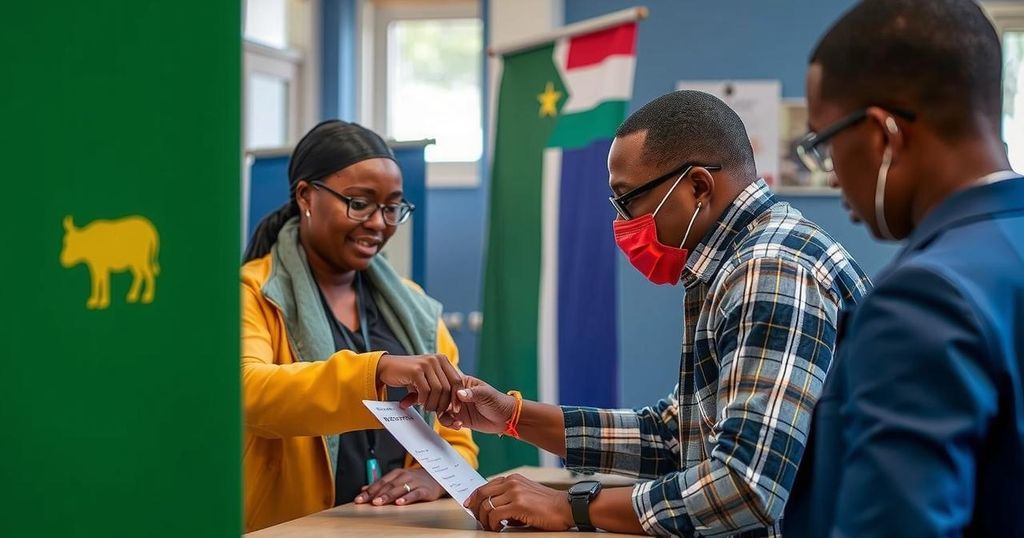Namibia Extends Election Voting Amid Technical Issues and Opposition Claims

Namibia has extended its election voting period amidst logistical challenges and ballot shortages, leading to opposition allegations of fraud. The ruling SWAPO party, facing criticism from frustrated youth regarding economic issues, aims to maintain its leadership amid heightened scrutiny from voters. The situation reflects broader discontent in southern Africa, where established parties are increasingly challenged by calls for change.
Namibia’s election process has been marred by significant technical difficulties, prompting the electoral agency to extend the voting period for several days. Originally scheduled to conclude on Wednesday, polling stations will now remain open until Saturday night to address issues stemming from ballot paper shortages. The extension has faced severe criticism from the opposition party, the Independent Patriots for Change, which has raised allegations of electoral fraud. Meanwhile, long queues at polling stations highlighted the logistical challenges faced by voters across the country, with many still awaiting the delivery of necessary ballot papers. The situation is compounded by ongoing political tensions in the region, particularly in Mozambique, where recent elections have incited violence and protests following allegations of vote rigging.
As the ruling SWAPO party seeks to maintain its dominance, Vice President Netumbo Nandi-Ndaitwah, a candidate for president, stands at a pivotal moment that could see her become the first female leader of Namibia. However, she faces a critical challenge from an increasingly disenchanted electorate plagued by high unemployment and economic disparity, particularly among the youth. The voters’ concerns are further exacerbated by the historical context of SWAPO’s longstanding governance since Namibia’s independence in 1990, a period during which the party has been recognized for conducting credible elections in a region often tarnished by political instability.
Namibia’s electoral climate has been shaped by a history of struggle for independence from colonial rule, followed by years of SWAPO’s political dominance. This election cycle is particularly significant due to rising dissatisfaction among the populace regarding unemployment and economic inequality, despite the country’s classification as an upper middle-income nation rich in natural resources. The frustrations mirror broader trends across southern Africa, where voters have increasingly turned against established parties in favor of new political solutions. The current electoral issues in Namibia have amplified concerns regarding transparency and integrity in the electoral process, putting pressure on the electoral management body to resolve these challenges promptly.
In summary, Namibia’s decision to extend the voting period due to technical complications and ballot shortages has ignited a wave of discontent among opposition parties and voters alike. This electoral cycle is crucial not only for the future leadership of the country but also in reflecting the broader sentiment of a population that is eager for change. As logistical hurdles continue to delay the voting process, how Namibia navigates this situation will have significant implications for its democratic reputation and political stability in the region.
Original Source: abcnews.go.com







